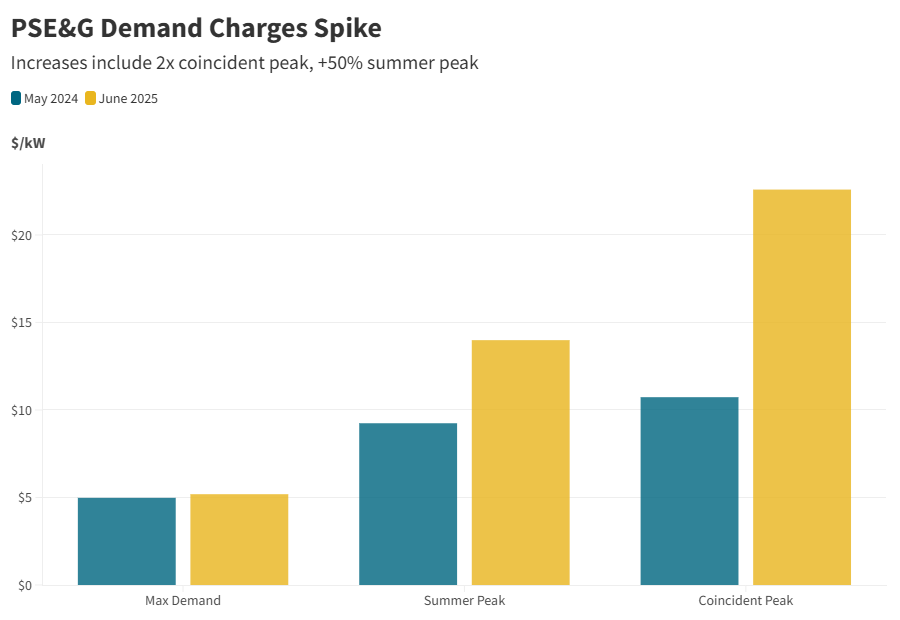
Powering the conversation.
Read, watch, and listen to the latest from Scale, with updates on our latest news, blogs and white papers, media appearances, and more.

Triple Stack of Value Powers a Bay State Battery Boom
December 12, 2026
|
Blog

Triple Stack of Value Powers a Bay State Battery Boom
December 12, 2026
|
Blog

Triple Stack of Value Powers a Bay State Battery Boom
December 12, 2026
|
Blog

Triple Stack of Value Powers a Bay State Battery Boom
December 12, 2026
|
Blog

Bring Your Own Power: Redefining Time-To-Power With Scale's BYOP Solutions
November 5, 2025
|
Blog

Bring Your Own Power: Redefining Time-To-Power With Scale's BYOP Solutions
November 5, 2025
|
Blog

Bring Your Own Power: Redefining Time-To-Power With Scale's BYOP Solutions
November 5, 2025
|
Blog

Bring Your Own Power: Redefining Time-To-Power With Scale's BYOP Solutions
November 5, 2025
|
Blog

Santa Clara VTA Breaks Ground on Microgrid Charging Project
September 26, 2025
|
Appearances

Santa Clara VTA Breaks Ground on Microgrid Charging Project
September 26, 2025
|
Appearances

Santa Clara VTA Breaks Ground on Microgrid Charging Project
September 26, 2025
|
Appearances

Santa Clara VTA Breaks Ground on Microgrid Charging Project
September 26, 2025
|
Appearances

Captona Broadens Signature Preferred Equity Program with Scale Microgrids
September 10, 2025
|
Press Releases

Captona Broadens Signature Preferred Equity Program with Scale Microgrids
September 10, 2025
|
Press Releases

Captona Broadens Signature Preferred Equity Program with Scale Microgrids
September 10, 2025
|
Press Releases

Captona Broadens Signature Preferred Equity Program with Scale Microgrids
September 10, 2025
|
Press Releases

A Historic University’s Microgrid Cuts Energy Costs and Benefits Local Community
September 5, 2025
|
Industry News

A Historic University’s Microgrid Cuts Energy Costs and Benefits Local Community
September 5, 2025
|
Industry News

A Historic University’s Microgrid Cuts Energy Costs and Benefits Local Community
September 5, 2025
|
Industry News

A Historic University’s Microgrid Cuts Energy Costs and Benefits Local Community
September 5, 2025
|
Industry News

New Jersey's New Rate Hikes - And New Battery Storage Opportunities
August 4, 2025
|
Blog

New Jersey's New Rate Hikes - And New Battery Storage Opportunities
August 4, 2025
|
Blog

New Jersey's New Rate Hikes - And New Battery Storage Opportunities
August 4, 2025
|
Blog

New Jersey's New Rate Hikes - And New Battery Storage Opportunities
August 4, 2025
|
Blog

How Microgrids and DERs Pitch in During Heatwaves to Support the Grid–and Earn Income
July 14, 2025
|
Appearances

How Microgrids and DERs Pitch in During Heatwaves to Support the Grid–and Earn Income
July 14, 2025
|
Appearances

How Microgrids and DERs Pitch in During Heatwaves to Support the Grid–and Earn Income
July 14, 2025
|
Appearances

How Microgrids and DERs Pitch in During Heatwaves to Support the Grid–and Earn Income
July 14, 2025
|
Appearances

Scale Microgrids Bolstered by $1B+ Funding to Deploy DERs Across US
June 13, 2025
|
Appearances

Scale Microgrids Bolstered by $1B+ Funding to Deploy DERs Across US
June 13, 2025
|
Appearances

Scale Microgrids Bolstered by $1B+ Funding to Deploy DERs Across US
June 13, 2025
|
Appearances

Scale Microgrids Bolstered by $1B+ Funding to Deploy DERs Across US
June 13, 2025
|
Appearances

Scale Microgrids Surpasses $1 Billion in Project Financing with Latest Close
June 12, 2025
|
Press Releases

Scale Microgrids Surpasses $1 Billion in Project Financing with Latest Close
June 12, 2025
|
Press Releases

Scale Microgrids Surpasses $1 Billion in Project Financing with Latest Close
June 12, 2025
|
Press Releases

Scale Microgrids Surpasses $1 Billion in Project Financing with Latest Close
June 12, 2025
|
Press Releases

Giving you the
power to grow.
Our team is ready to help you take charge of your energy with solutions designed to meet your needs.

